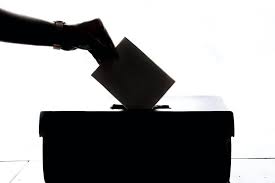
The Electoral Office of Dominica reminds electors that during all elections the secrecy of the ballot and the protection of that secrecy are of ultimate importance and guaranteed by law.
Chief Electoral Officer Ian Michael Anthony stated, “As you, the electorate, go out the cast your ballot on election day, I take the opportunity to emphasize a very important aspect our electoral process, which is the secrecy of the ballot.”
He explained the process that protects the elector’s secrecy even after he or she has returned from the voting booth and the portion of the ballot containing the ballot number is removed before the ballot is cast.
“The secrecy of your vote is guaranteed. This is because the ballot number on the counterfoil and stub of the ballot book is not printed on your marked ballot paper which the Presiding Officer will place in the ballot box. Therefore, there is no reference on the ballot paper to the voter. That means no one can know who you vote for.”
Section 34 of the House of Assembly (Elections) Act makes this process clear. It says:
- General mode of taking ballot.
- Each elector shall receive from the presiding officer a ballot paper on which such
officer has previously put his initials so placed as indicated on Form 18 that when the
ballot paper is folded they can be seen without opening it, and on the counterfoil of
which he has placed the elector’s electoral registration number entered in the poll book
opposite the name of the elector
- The presiding officer shall instruct the elector how to make his mark, and shall
properly fold the elector’s ballot, directing him to return it, when marked, folded as
shown, but without inquiring or seeing for whom the electors intends to vote, except
when the elector is unable to vote in the manner prescribed by this Act on account of
blindness or other physical incapacity.
- The elector on receiving the ballot papers shall forthwith enter one of the polling
compartments and there mark his ballot paper by marking with a black lead pencil and
not otherwise a cross within the space containing the name of the candidate for whom
he intends to vote, and he shall then fold the ballot paper as directed so that the initials
and the numbers on the counterfoil can be seen without opening it, and hand the paper
to the presiding officer who shall, without unfolding it, ascertain by examination of the
initials and numbers appearing thereon that is the same paper as that delivered to the
elector and if the same he shall forthwith in full view of the voter and all the other
present remove the counterfoil and deposit the ballot paper in the ballot box.
The Electoral Office encourages all registered electors to cast their ballot on election day, as is their right.






